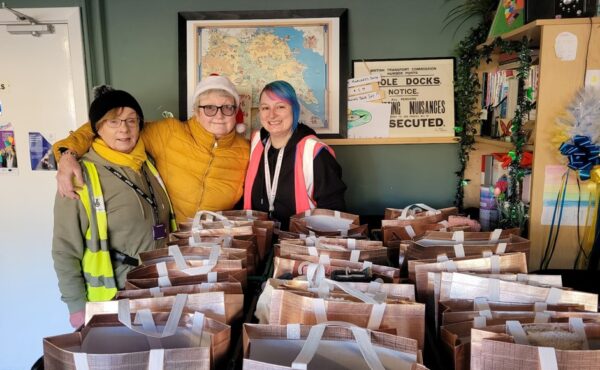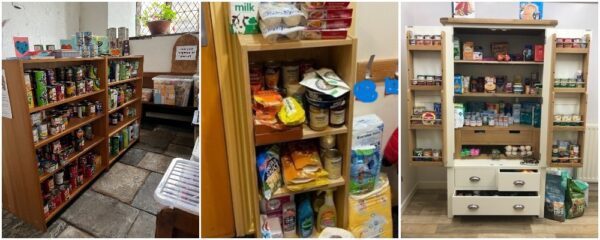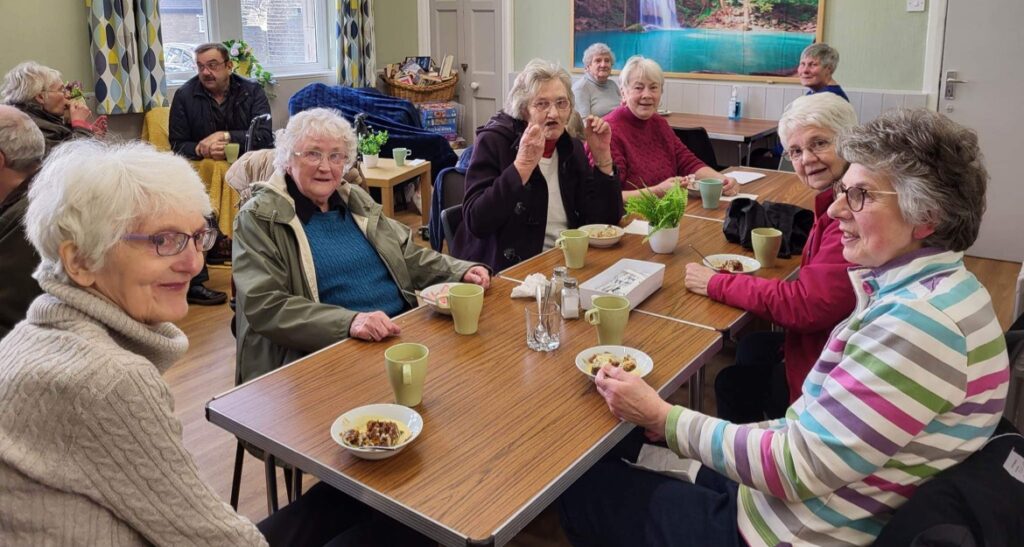Why we are relaunching our Cost of Living Crisis Fund appeal
Autumn is here and and as the evenings draw in, thoughts inevitably turn to the darker, colder months ahead.
Sadly, for many people in our communities, these thoughts about the upcoming winter will be dominated by fear – of the cold, of hunger and of the stress of covering the escalating cost of essentials.
In many cases, this fear will be rooted in people’s lived experience of last winter, when the cost of living crisis really started to take hold, and the gap between incomes and basic costs tipped many people over the edge.
Other people are feeling the fear for the first time, as the lack of additional support with energy bills, combined with the ongoing impact of inflation, will mean that they join the numbers among us who can no longer make ends meet.
The cost of living crisis is still here. It is affecting more and more people. And community organisations are and will continue to be an absolute lifeline for the most vulnerable and marginalized groups in our society.
That is why we feel compelled to relaunch our Cost of Living Crisis Fund appeal, and we are asking again for your support

Since launching the appeal in autumn last year, we have raised more than £500,000 from a range of donors to support the fund. We are truly grateful to local authorities, businesses, foundations and private individuals for their generosity in enabling a genuinely community-based response.
We’ve made more than 130 grants so far, supporting approximately 10,000 people across North and East Yorkshire.
This money has made so many vital activities possible – providing hot meals, replenishing food bank supplies, heating warm hubs, distributing bedding, curtains, hot water bottles and slow cookers. It has also covered some of the essential running costs of the many community groups who are acting as frontline responders.
You can read more about the impacts of our funding here.
And as we gear up to ensure that these activities can continue, we also want to share some of the lessons we have learnt from the funding distributed over the last year, and particularly about the crucial role of community groups.

Different ways to reach people
Firstly, community groups provide a variety of ‘entry points’ for reaching people. Some of it is direct provision, such as food banks and community fridges, where people can literally come and receive basic food items.
But community spaces such as warm hubs and wellbeing activities are also vital and can provide a softer in for people who are reluctant to directly request help with food poverty.
In addition, some organisations do home visits based on referrals, for people who might feel unable to go to a drop-in. This is really important in reaching those who need help most.
Small interventions make a huge impact
Secondly, modest interventions can have a disproportionate impact. Accessing a hot nutritious meal has numerous benefits beyond the obvious physical health benefits. Food is a great leveller, and we hear many stories about how sharing food improves clients’ mental wellbeing and reduces social isolation.
In many cases, groups report that service users become active volunteers in the service as a result of their experience – increasing community engagement and social capital.
Vital signposting and filling the gaps in statutory services
Thirdly, community groups are vital connectors between different parts of the system – clients and users present with a complex array of problems which often go way beyond the immediate need for a meal. Community groups are advising, signposting, collaborating and connecting.
They work strategically to complement each other’s activities and fill gaps in statutory services. It is vital that we acknowledge and support the expertise and capacity required to do this.
Community organisations need to survive
Fourthly, organisations themselves need support to survive the impacts of the crisis. Many of the community groups are themselves facing skyrocketing costs as well as an exponential increase in the demand for their services. We hear frequently about the stress that staff are under, with people getting burnt out and traumatised by all the people they are supporting.
In our second phase of funding, we increased grant sizes and encouraged groups delivering frontline services to submit budgets which could include up to 80% overhead costs – to make sure they could continue to keep their doors open.
Ongoing support is vital
Fifthly and finally – they still need our funding and support as this winter approaches.
Over the last year, we have seen and heard many stories that demonstrate how getting small amounts of money right to the coalface is an absolute lifeline for our communities.
If you can, please help us to continue to do so.
Talk to Celia directly about your giving options on 07519 485103

